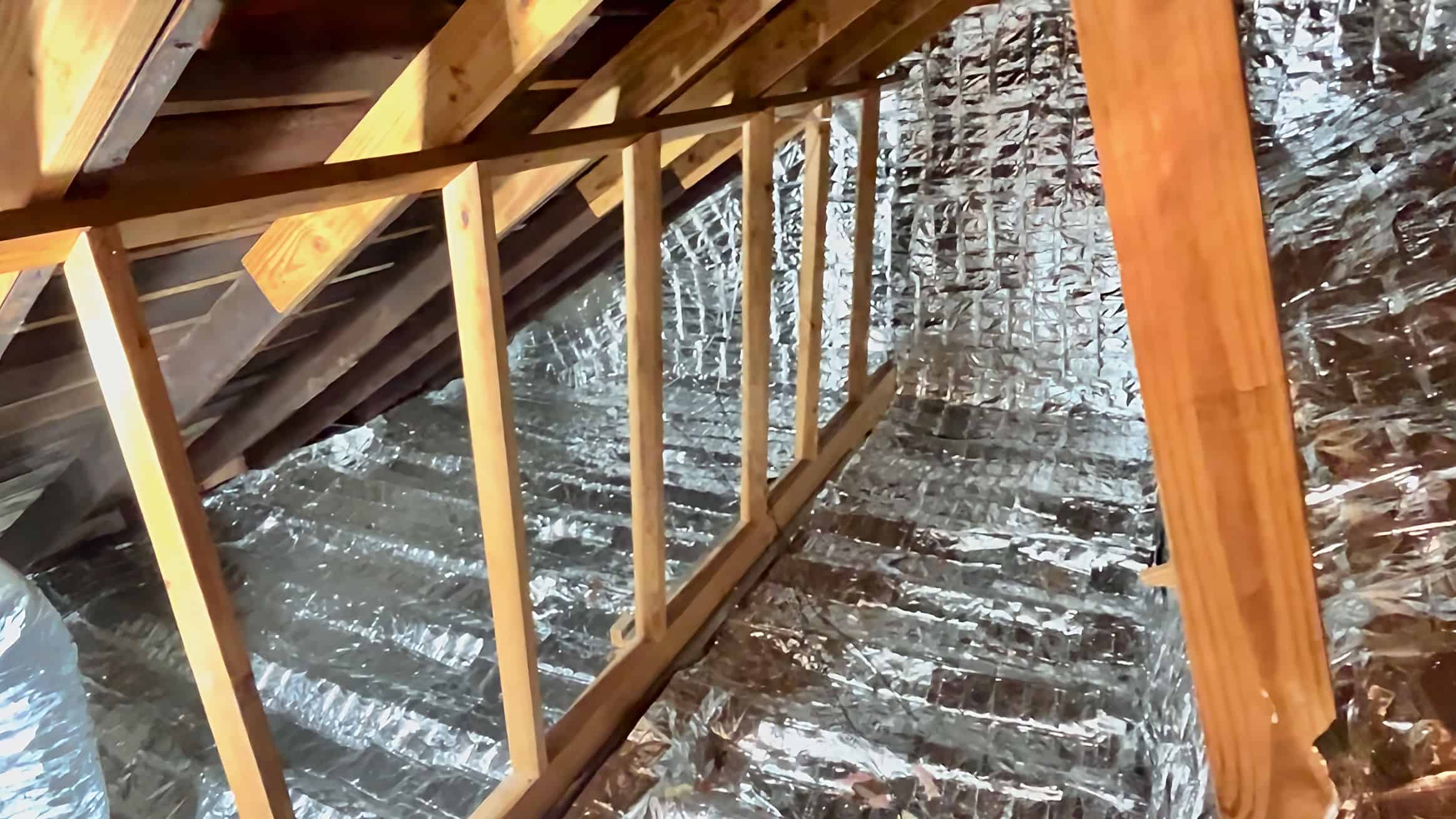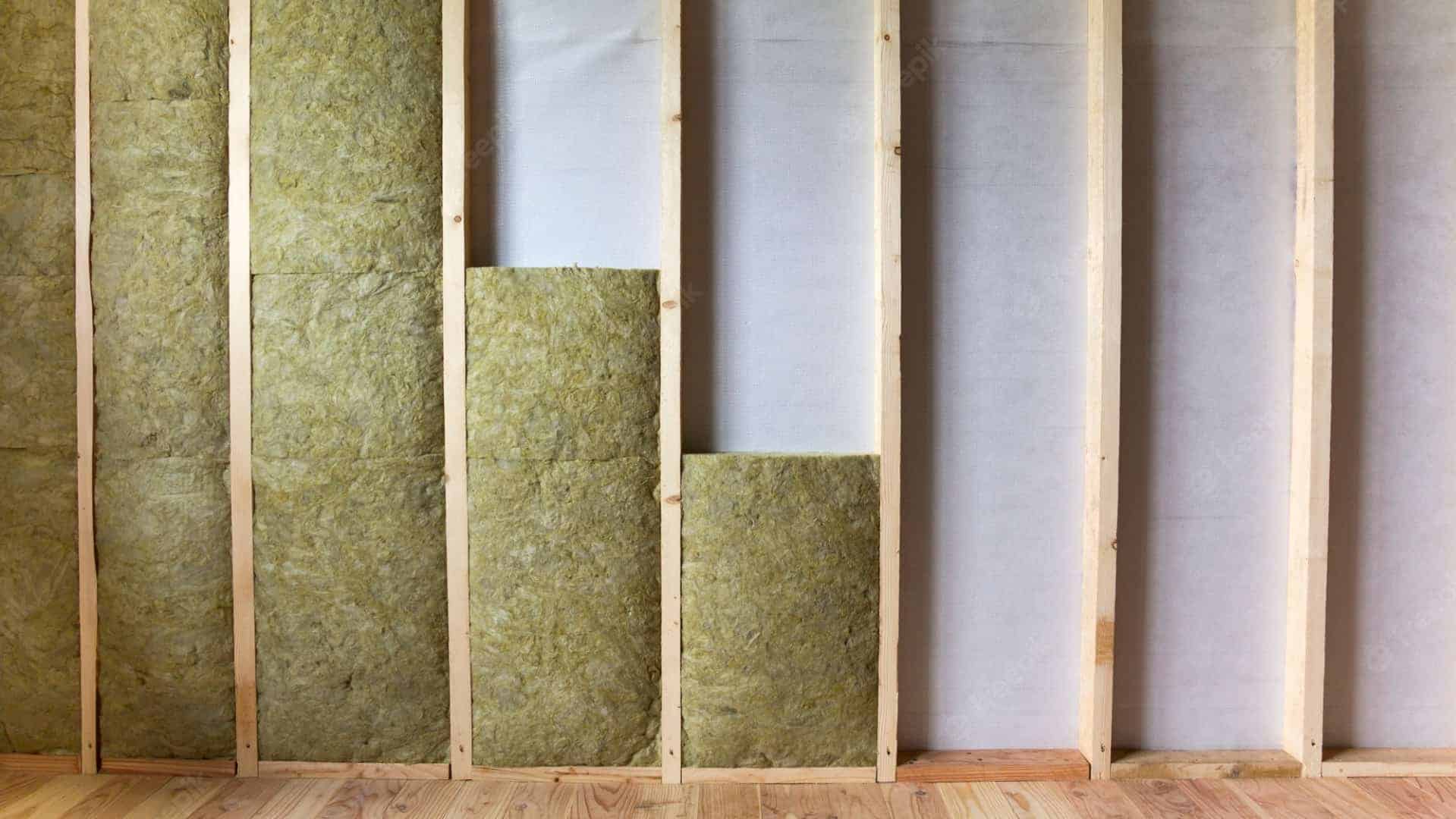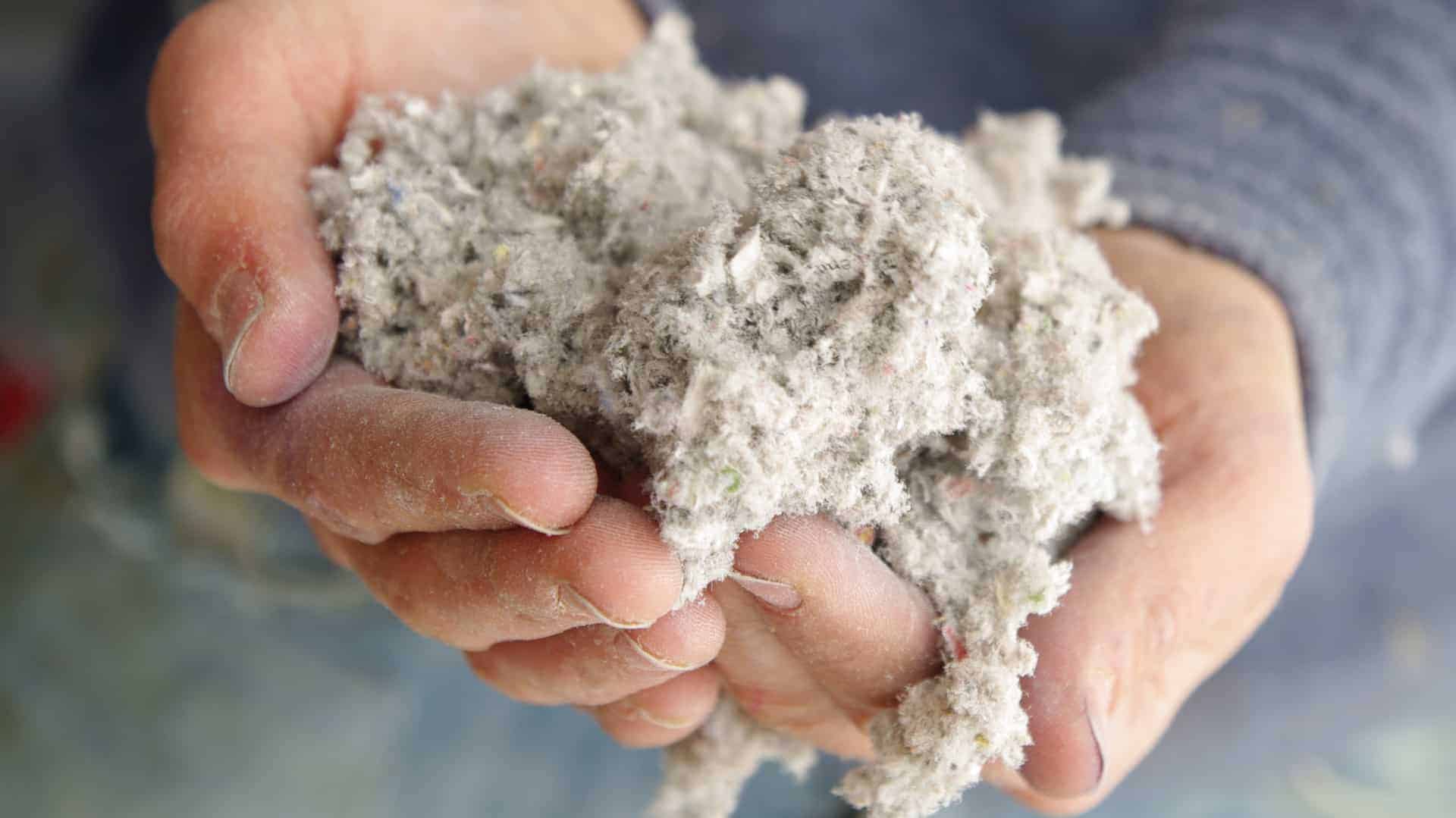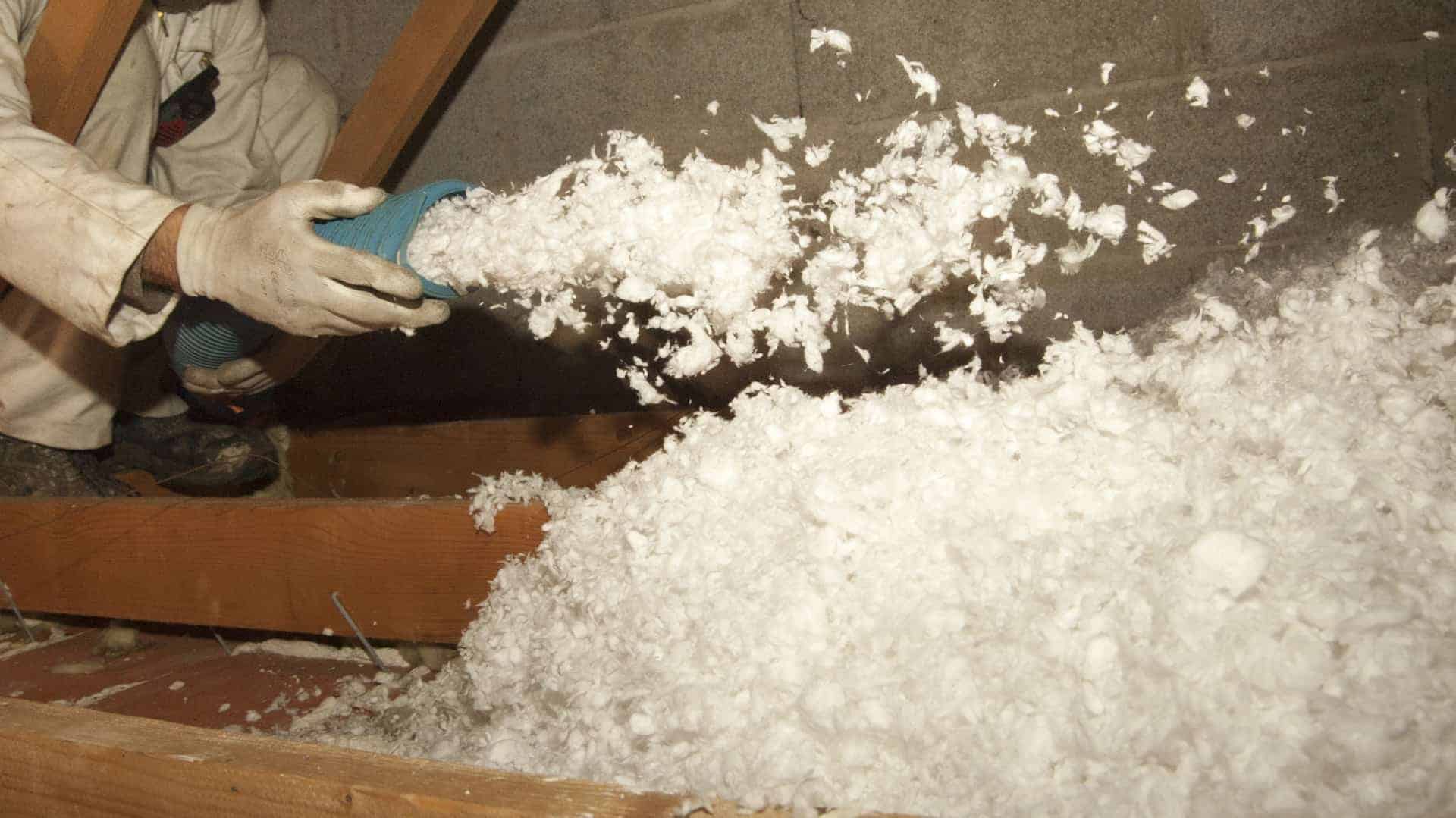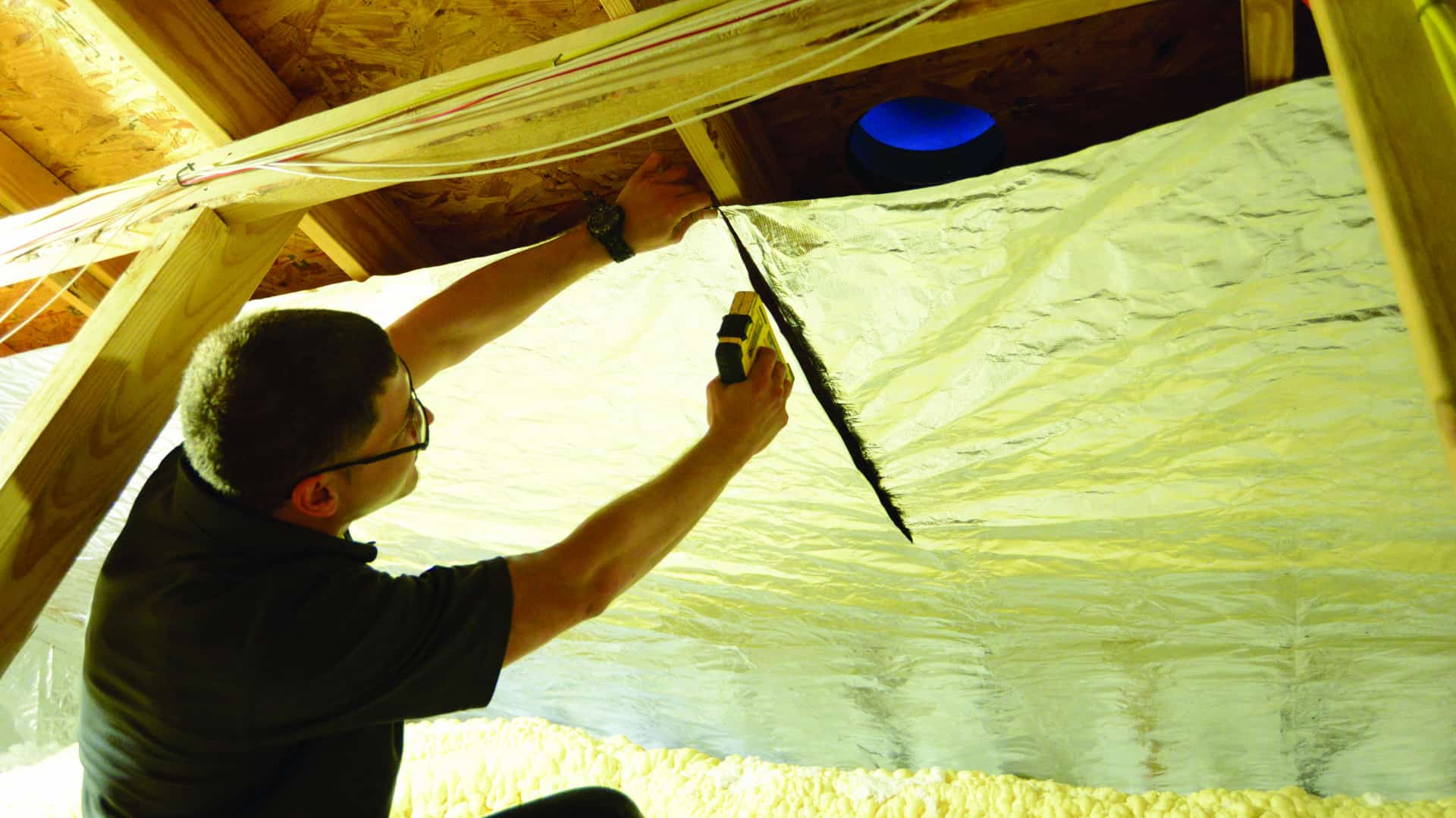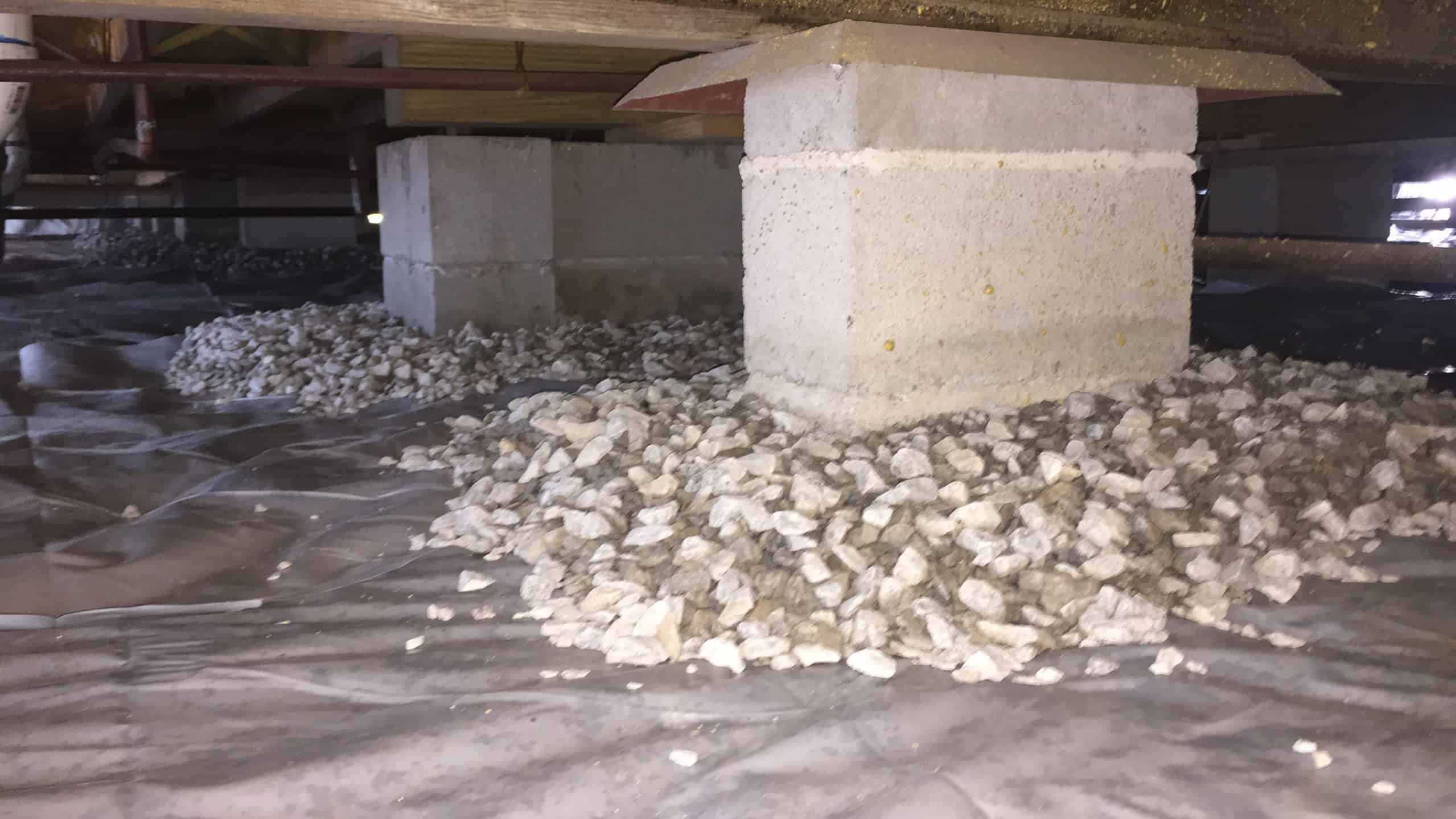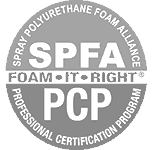Spray polyurethane foam insulation is the only true air barrier on the market, outperforming every other traditional insulation product available. However, it performs well below expectations if an incorrect spray foam product is used or if the spray foam is improperly installed. This is why Diversified Energy is willing to take the time to understand the science of your specific structure, and we always adhere to industry best-practice recommendations.
Employing only proven, code-required techniques, DE customizes spray polyurethane foam insulation packages for residential and commercial applications across the Gulf South.
Spray Foam Your Ductwork
Leaky, uninsulated HVAC ductwork can drastically increase your heating and cooling costs and negatively affect your Indoor Air Quality. Diversified Energy can address both of these issues by spraying your ductwork with foam insulation. Spray foam insulation not only insulates, but also seals your ductwork in a single, high-performance application.
Lower your heating and cooling bill, and improve your Indoor Air Quality today by having Diversified Energy install spray foam insulation on your HVAC ductwork.
Spray Foam Insulation Videos
Benefits Of Spray Polyurethane Foam Insulation
Spray polyurethane foam (SPF) insulation is a type of insulation that is applied as a liquid and expands to fill all the nooks and crannies in a building structure.
The benefits of using SPF insulation in a home include:
Energy Efficiency: SPF insulation forms a continuous and airtight barrier that helps prevent heat transfer, reducing heating and cooling costs and improving energy efficiency.
Improved Indoor Air Quality: By sealing air leaks and reducing the amount of outside air that enters the home, SPF insulation can improve indoor air quality and reduce the risk of allergens, pollutants, and other irritants entering the home.
Increased Structural Strength: SPF insulation can strengthen the building structure by bonding to the building materials and forming a continuous barrier that helps prevent air and moisture infiltration.
Improved Comfort: By reducing the amount of air infiltration, SPF insulation can improve the comfort of a home by reducing drafts, hot and cold spots, and other comfort-related issues.
Long-Lasting: SPF insulation is durable and long-lasting, and it does not settle or lose its insulating properties over time like some other types of insulation.
Easy to Install: SPF insulation is quick and easy to install, and it can be applied to hard-to-reach areas that are difficult to insulate with other types of insulation.
Eco-Friendly: SPF insulation is made from environmentally friendly materials and does not contain any ozone-depleting substances, making it a good choice for homeowners who are concerned about the environment.
Overall, the use of SPF insulation in a home can provide significant benefits in terms of energy efficiency, indoor air quality, comfort, and structural integrity, making it a popular choice among homeowners and builders.
FAQs About Spray Polyurethane Foam Insulation
Spray foam is a chemical product created by two materials, isocyanate and polyol resin, which react when mixed with each other and expand up to 30-60 times their liquid volume after it is sprayed in place.
Spray foam insulation or spray polyurethane foam [SPF] is an alternative to traditional building insulation such as fiberglass. A two-component mixture composed of isocyanate and polyol resin comes together at the tip of a gun and forms an expanding foam that is sprayed onto roof tiles, concrete slabs, into wall cavities, or through holes drilled in into a cavity of a finished wall.
“Spray foam” is also an informal term used to refer to various plastic foam materials that are used in building construction to provide thermal insulation and minimize air infiltration.
Spray polyurethane foam [SPF] insulation can be categorized into two different types: light-density open-cell spray foam insulation and medium-density closed-cell spray foam insulation. Both types of SPF are thermoset cellular plastics comprising millions of small cells.
Open-cell spray foam has an R-Value of 3.7 per installed inch. This is similar to fiberglass or cellulose insulation, but open-cell foam also offers air-sealing qualities that fiberglass and cellulose insulation do not.
Closed-cell spray foam has an R-Value of 6.5 per installed inch. This is basically double the R-Value of open-cell foam, cellulose, and fiberglass insulation. Plus, closed cell foam is a 100% vapor barrier, making it one of the most effective insulation products available at any price.
Spray polyurethane foam can be installed anywhere that you would normally install fiberglass or cellulose insulation [walls & attics]. Closed cell foam is the only product we will install under a raised house, as it is watertight after installation, and won’t absorb moisture like fiberglass or cellulose insulation in the event of flooding.
Closed-cell spray foam has an R-Value of Open-cell foam insulation and closed-cell foam insulation can be used in combination to maximize your performance and budget. They can also be used in combination with fiberglass and cellulose insulation.6.5 per installed inch. This is basically double the R-Value of open-cell foam, cellulose, and fiberglass insulation. Plus, closed cell foam is a 100% vapor barrier, making it one of the most effective insulation products available at any price.
For example, we have clients that have installed two to three inches of closed cell foam in their attic, then covered that with six or more inches of blown cellulose or fiberglass to raise their overall R-Value to meet or exceed code requirements. This way, they get all of the air sealing qualities and high performance of closed-cell foam, while saving some money overall by coupling it with fiberglass or cellulose insulation.
The options are almost endless regarding how we can help you achieve your insulation goals, and how and where we install our insulation products.
The cost of spray foam insulation is higher than other insulation products like fiberglass or cellulose, but the advanced performance and air sealing qualities can’t be equaled. It will cost more upfront, but the payback through significantly lower cooling and heating bills and reductions in the size of the HVAC equipment necessary will bring payback that the others can’t.
The main determining factors of the cost of having high-performance spray polyurethane foam insulation installed in your home or business are: Do you want open-cell foam insulation or closed-cell foam insulation? How many square feet of space will need to be insulated? How many inches of foam need to be installed? And, where will the foam be installed [floor, attic, walls]?
For answers to all of your questions about spray foam insulation, and for a free consultation and quote, contact us today!
